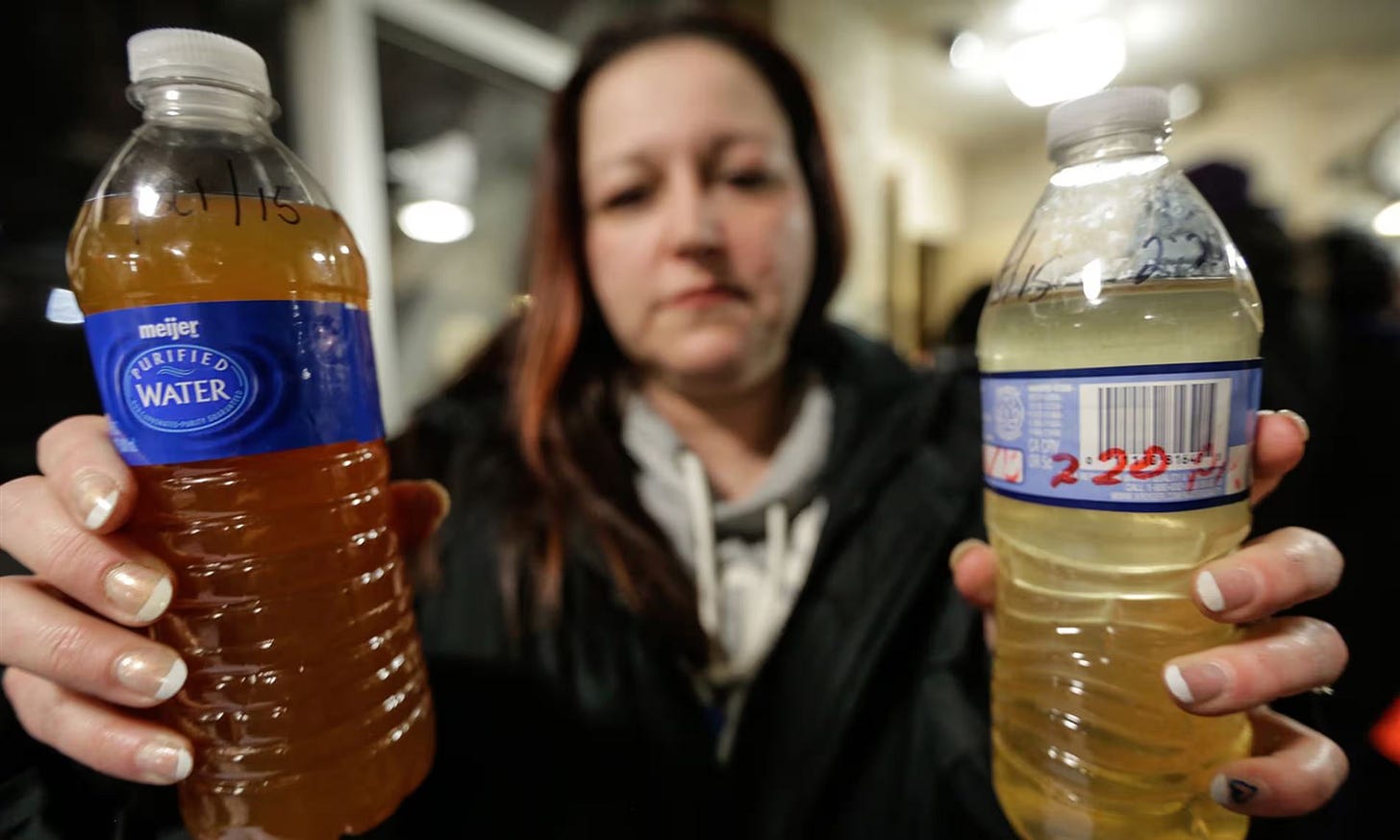Flint Finally Got Clean Water—And Nobody Seems to Care
After 11 years, Flint, Michigan officially has clean, safe drinking water.
This spring, something monumental happened:
After 11 years, Flint, Michigan officially has clean, safe drinking water.
The EPA lifted its emergency order. The city finished replacing nearly 11,000 lead service lines. The water is testing below federal action levels. Tap water in Flint is—finally—drinkable.
And yet…almost no headlines. No major networks.
No State of the Union shoutout. No national reckoning.
No accountability parade.
A Crisis That Defined a Generation
From 2014 onward, Flint became a symbol.
A symbol of neglect.
A case study in environmental racism. A real-time documentary of government failure.
For years, we watched mothers bathe their babies in bottled water.
We saw poisoned children. We heard endless “investigations” that led nowhere.
Flint was America’s shame.
Until, it seems, it got too boring to follow. Too inconvenient to keep caring.
The fact that an American city spent over 11 years fighting for something as basic as clean drinking water should be enough to stop the country in its tracks. But it hasn’t. Instead, the world moved on.
We live in an age of hyper-reactive empathy. We rage-tweet when the headlines are hot. We post “thoughts and prayers” graphics when tragedy hits. We share petitions, we use the hashtags, we flood timelines with urgent energy—for a few days. Maybe a week.
But then...we scroll.
What we don't do is stick around. We don’t follow the stories once they become slow, bureaucratic, or—worst of all—invisible. Real crises don’t burn bright and disappear. They simmer for years. They require infrastructure, oversight, and persistence. They demand leadership that isn't afraid to take on the “boring” work.
And in the media age, if something isn’t breaking news, trending, or monetizable—it rarely gets the coverage or action it deserves.
That’s what makes the silence around Flint so infuriating. A community just clawed its way out of one of the worst environmental justice failures in modern U.S. history, and it was met with...crickets.
But maybe it is also because of distrust, many residents still aren’t sure they can fully believe the city leadership.
What Should Have Happened
Let’s be honest—when Flint’s water was finally declared safe this spring, there should have been front-page stories on every major outlet. Local news shouldn't have been the only one covering it. We should have seen:
Interviews with the mothers and organizers who refused to be ignored.
Editorials from the very politicians who once promised justice.
National lessons broadcast on how other cities can avoid the same disaster.
Because this isn’t just Flint’s story. Flint is a mirror. A flashing warning sign. A test case. And most importantly—it’s not alone.
There are over 9 million lead service lines still in use across the United States. Communities in Pennsylvania, Michigan, Ohio, and even rural Arizona are facing contaminated wells, crumbling pipes, and failing infrastructure. Climate-driven droughts are pushing some towns toward Day Zero scenarios—where the tap literally runs dry.
So where’s the urgency?
Where’s the conversation?
Why aren’t we connecting the dots?
Because we don’t pay attention until it’s too late. And even then, we don’t pay attention long enough.
This Is What Injustice Looks Like
Sometimes, it’s subtle. Bureaucratic. Tedious. It looks like a rusted pipe that never got replaced. A water report nobody read. A grant that never got approved.
It’s the suffering that happens when the cameras go off.
It’s what we stop talking about. It’s what we quietly decide is no longer “relevant.”
That’s the kind of injustice that lets entire cities fall apart while we keep refreshing our feeds for something newer.
Flint didn’t get justice because the system worked. Flint got justice because residents refused to give up.
They organized. They sued.
They demanded national attention. And they held on longer than anyone expected them to.
That deserves to be celebrated. Loudly. Publicly. Permanently.
We need to call out the politicians who disappeared after the photo ops.
We need to ask why it took over a decade for a community to access something so fundamental. And we need to ask ourselves: what are we willing to accept?
Until we treat clean water like a non-negotiable human right—and not a passing headline—we are doomed to repeat this failure.
And next time, it might be your city.
Dream Big, Act Bigger.
Sound Off:
What other long-term fights deserve more attention right now?
And what would it look like to build a culture that doesn’t scroll away from suffering?









